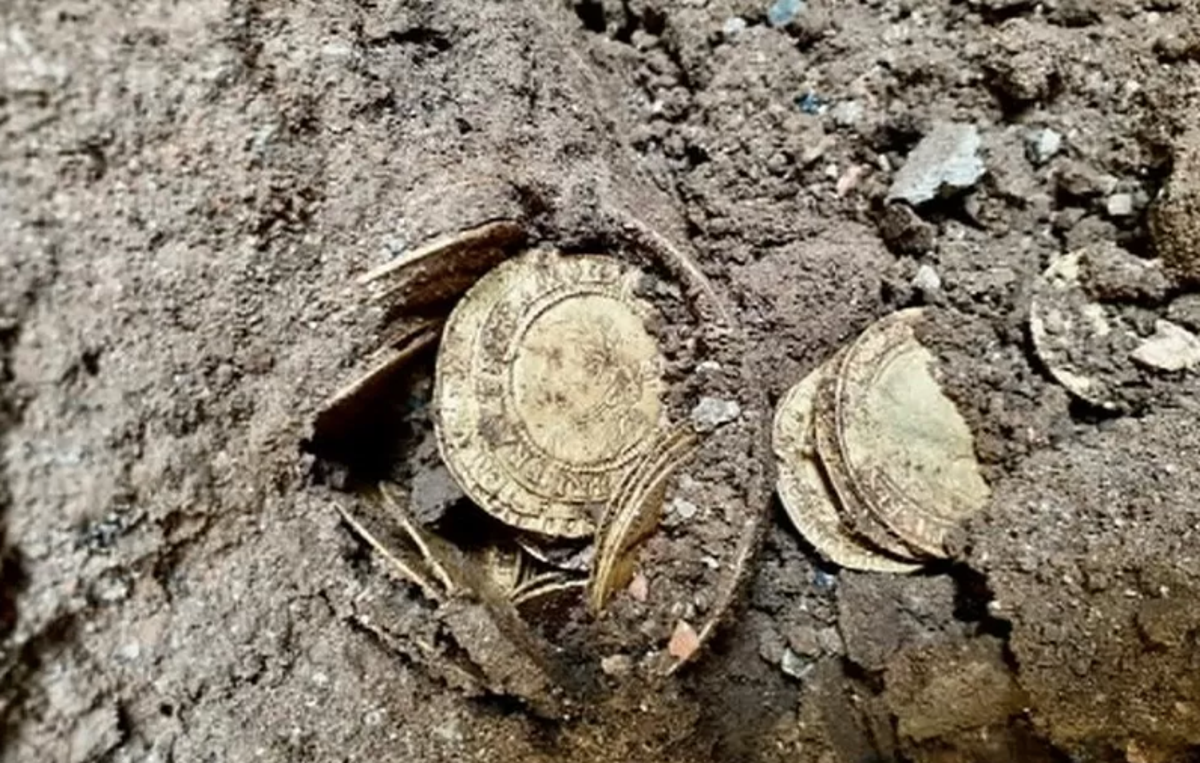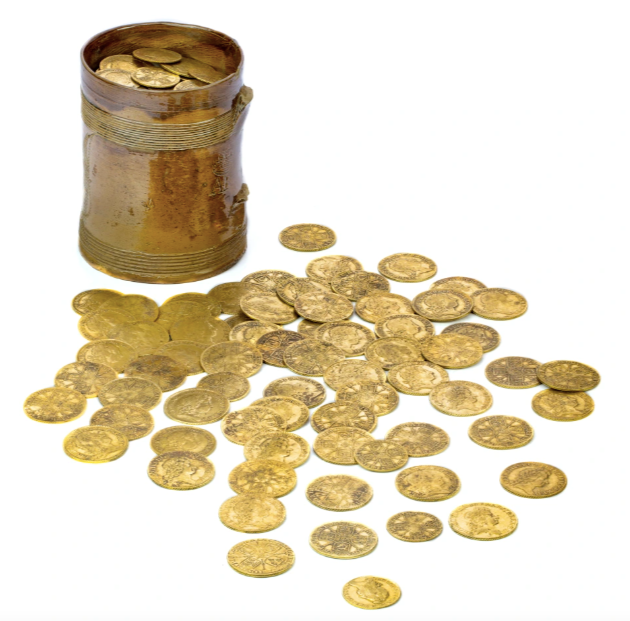
More than 260 ancient gold coins have been discovered by a couple under their kitchen floor, and have sold for £754,000 at auction.
The collection was hidden inside a pot under the 18th-century floorboards of the anonymous couple’s home in Ellerby, East Yorkshire, in 2019, and dates back from 1610 to 1727.
The treasure trove originally belonged to the Fernley-Maisters, a Hull family involved in Baltic trading.

The family were known for importing and exporting timber, iron ore and coal, with some members later serving as Members of Parliament in the early 1700s.
Joseph Fernley and Sarah Maister married in 1694 and lived in the East Yorkshire village. The money was collected by the couple during their marriage.
Joseph died in 1725, aged 76, while Sarah died aged 80 in 1745, with the “family line dying out soon after”.
Spink & Son, the auctioneers who sold the coins, called the final sale price “absolutely extraordinary” after they were predicted to fetch £200,000 to £250,000.
After attracting worldwide attention, the collection was sold to dozens of buyers in individual lots by the auctioneers in London, totalling £754,000.
The auction house called the collection “one of the largest hoards of 18th-century English gold coins ever found in Britain”.
The coins garnered global interest from private collectors in America, Europe, Australia, China and Japan.
Auctioneer Gregory Edmund said they were “120 years of English history hidden in a pot the same size as a soda can”.
Mr Edmund added: “Picture the scene: you’re choosing to re-lay your uneven kitchen floor, you put a pick-axe through the concrete and just beneath you see a tiny sliver of gold.
“At the time, you think it must just be a bit of electrical cable, but you find it’s a gold round disc and beneath it there are hundreds more.”
He described the bidding as “electrifying” after dozens of successful bidders paid a fortune for the collection, adding he “will never see an auction like this again”.







